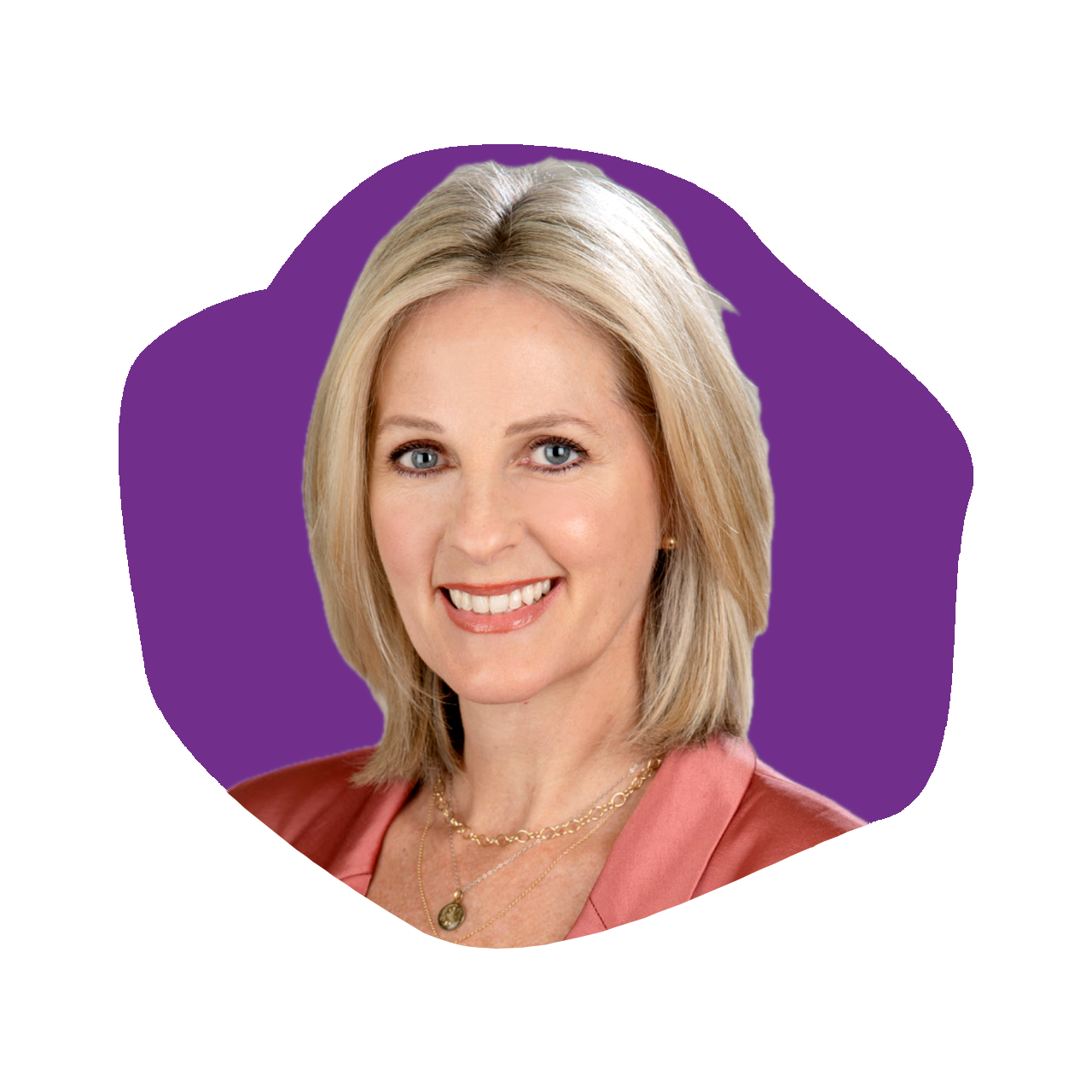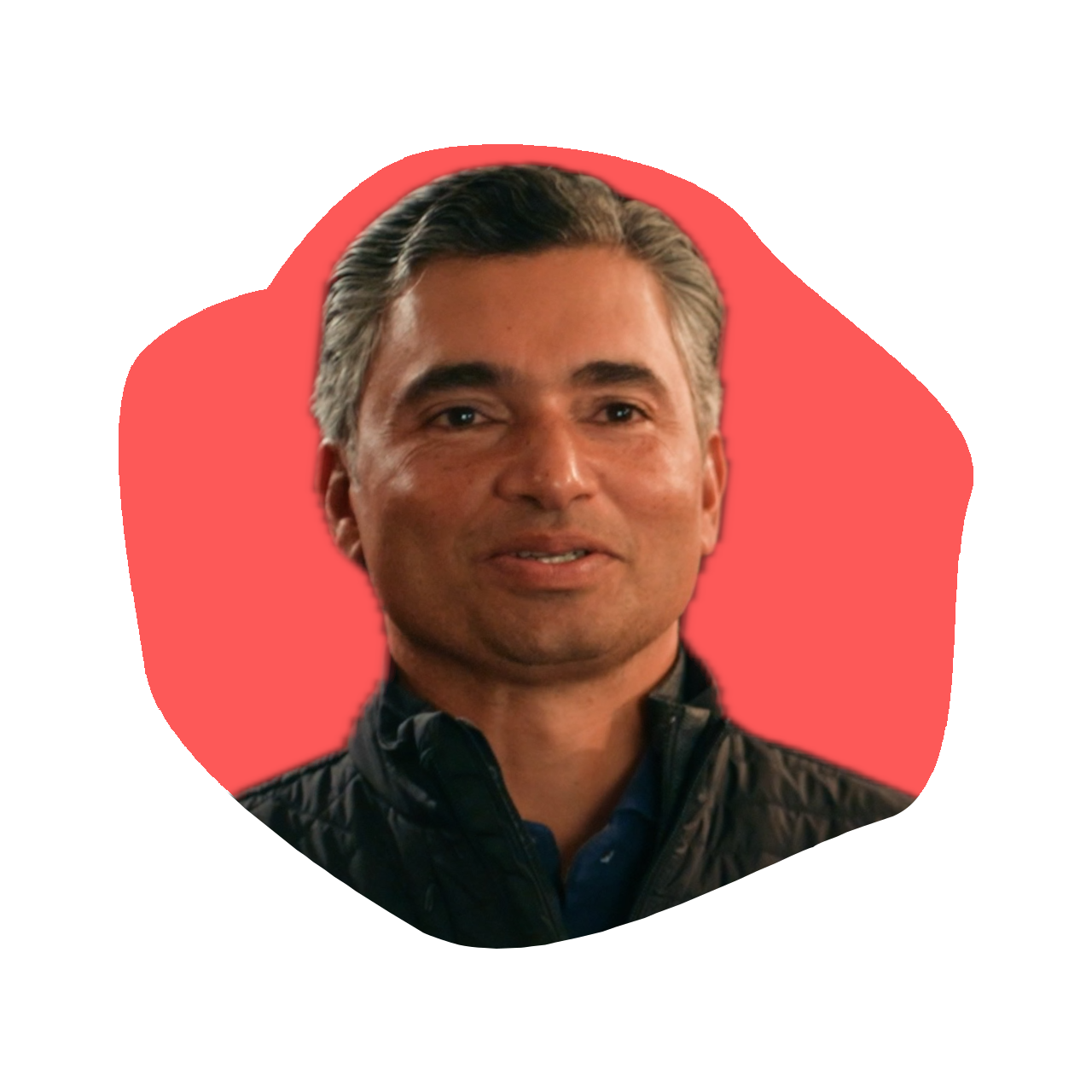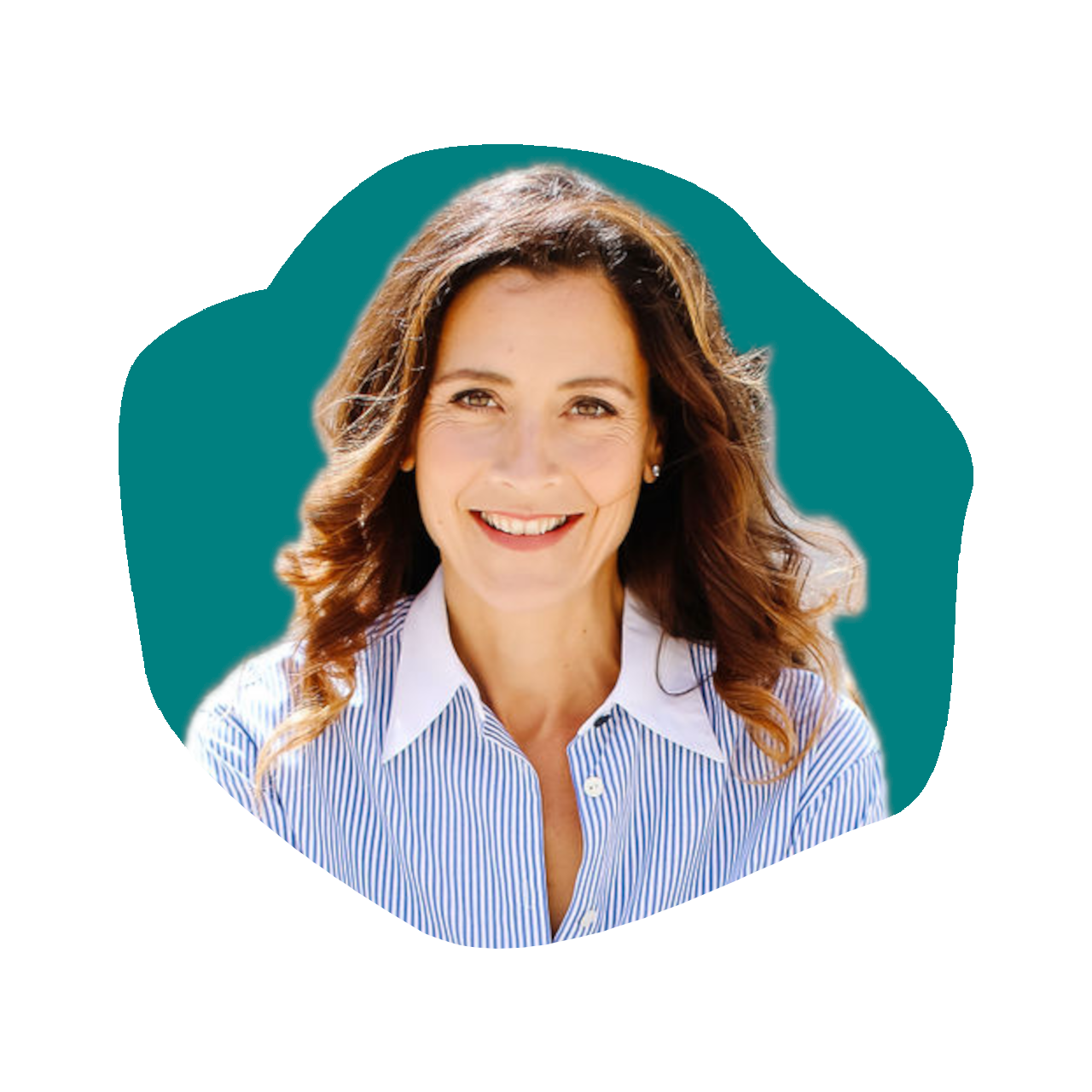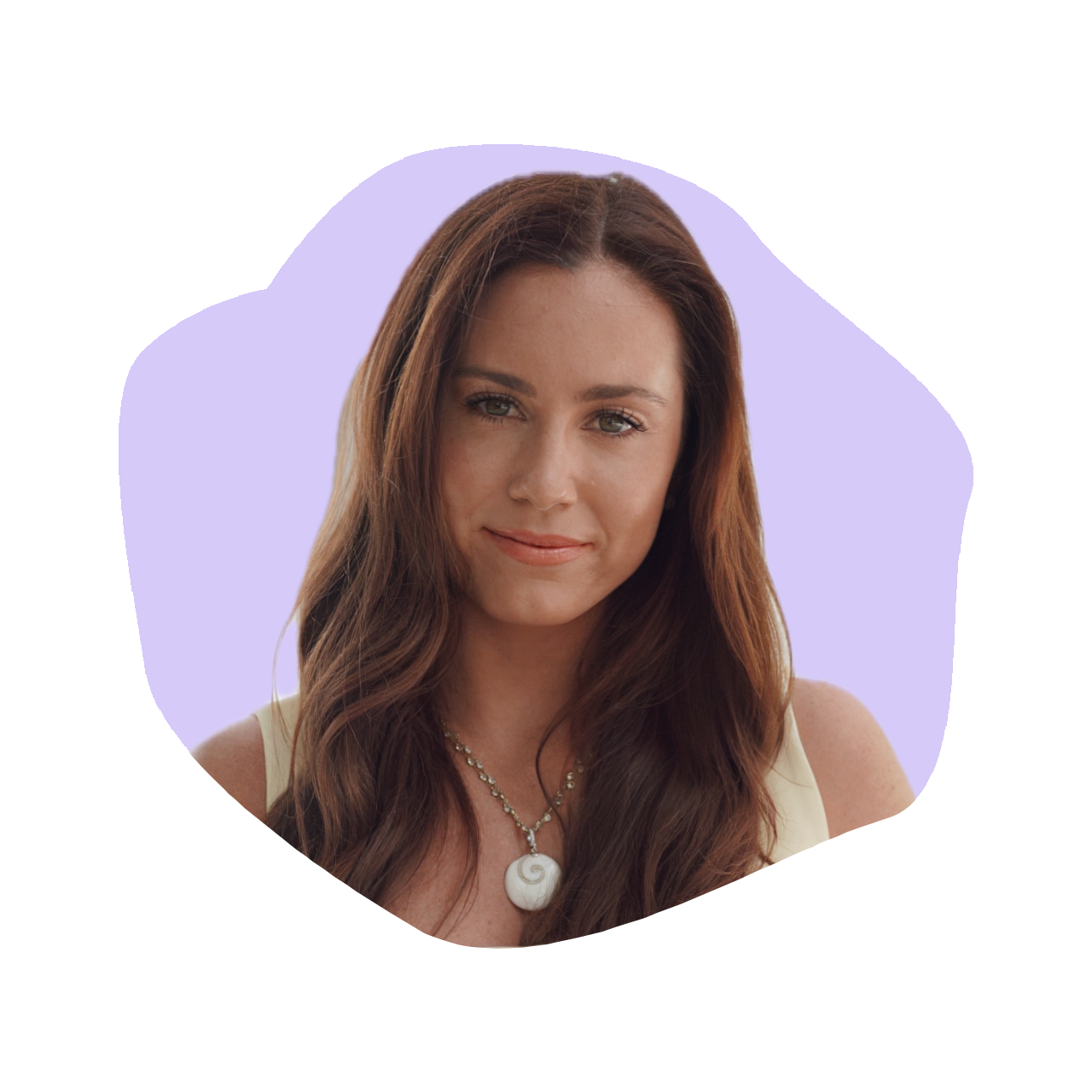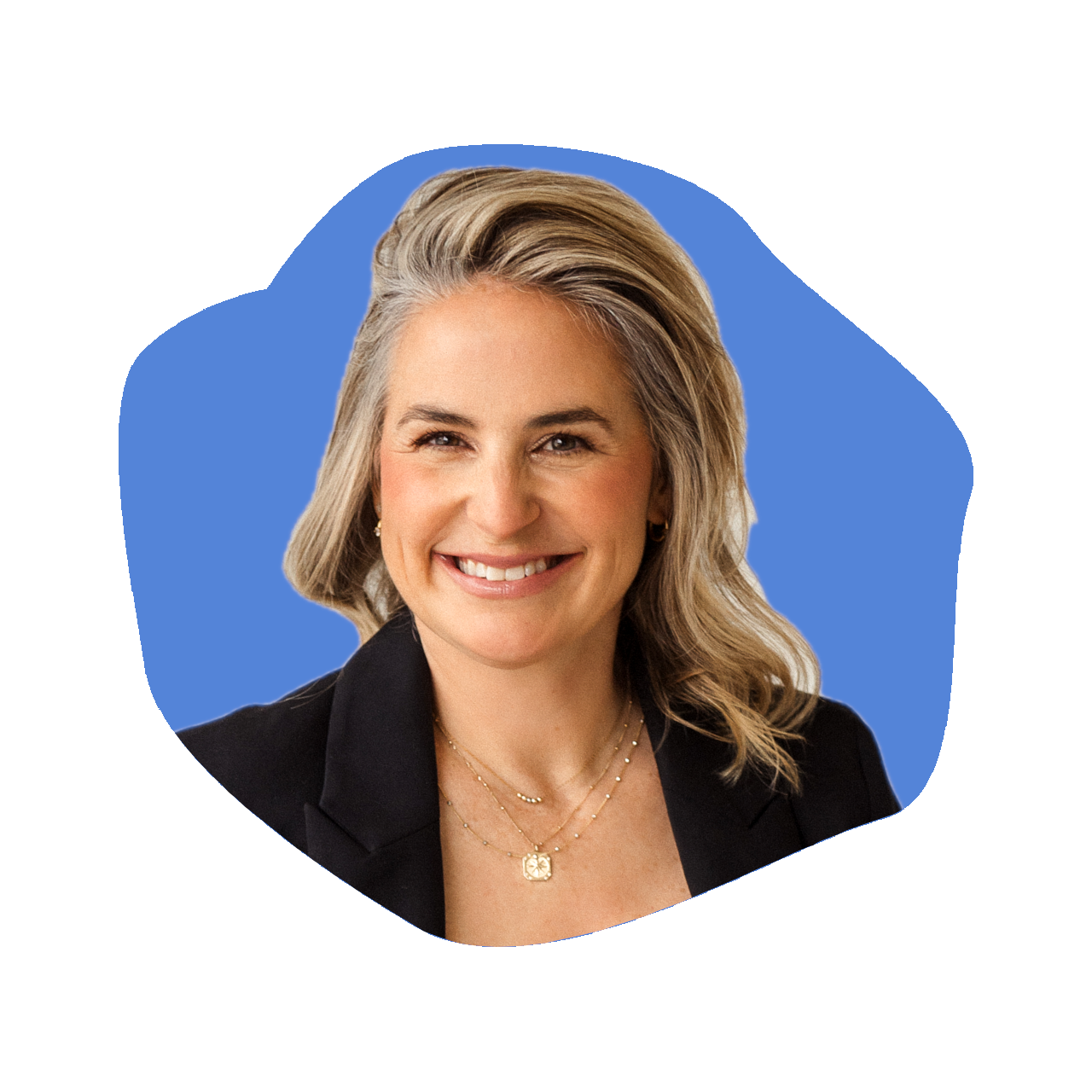Katie Beal Brown: Founder & CEO of Lone River Beverage Company
Episode 457
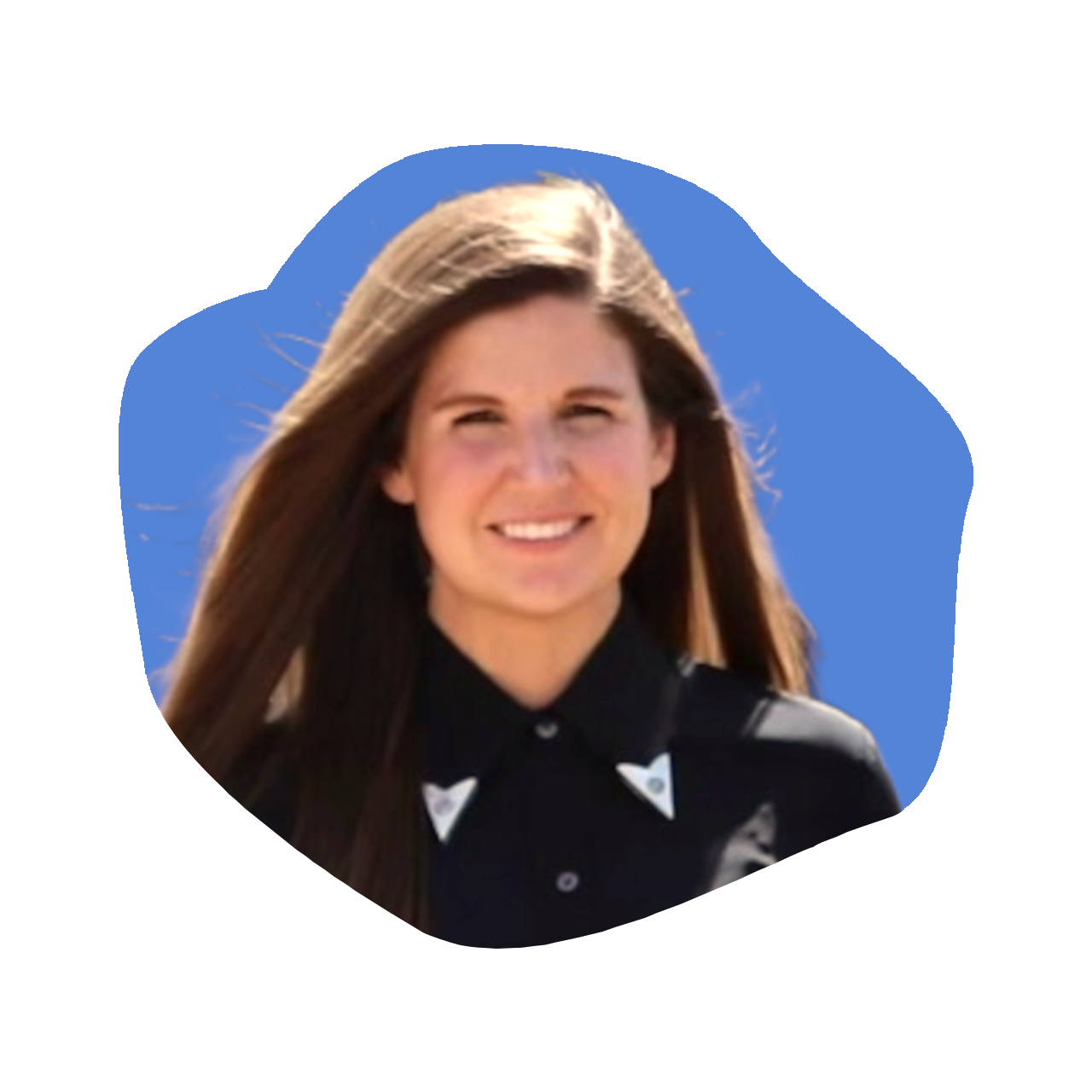
This fourth generation Texan wasn’t going to let the world not try the best tasting drinks from Texas! Katie Beal Brown, Founder and CEO of Lone River Beverage Company shares all about how she got started and quickly acquired by none other than Diageo in only two years! Through her meticulous attention to detail and relentless pursuit of excellence, she has successfully created a product that not only meets but exceeds the expectations of consumers. Katie's unwavering dedication to quality and authenticity is evident in every aspect of her brand, from the carefully sourced ingredients to the captivating flavor profiles. We dig in to hear more about how she did it and more including the many lessons she has learned on her way to success. It is fascinating, authentic, insightful and I know that you will be glad you listened. Now on #TheKaraGoldinShow.
Resources from
this episode:
Enjoying this episode of #TheKaraGoldinShow? Let Kara know by clicking on the links below and sending her a quick shout-out on social!
Follow Kara on LinkedIn – Instagram – X – Facebook – TikTok – YouTube – Threads
Have a question for Kara about one of our episodes? Reach out to Kara directly at [email protected]
To learn more about Katie Beal Brown and Lone River Beverage Company:
https://www.instagram.com/katiebealbrown
https://www.instagram.com/loneriverbevco
https://www.instagram.com/ranchwater
https://www.loneriverbevco.com
Transcript
Kara Goldin 0:00
I am unwilling to give up that I will start over from scratch as many times as it takes to get where I want to be. I want to just want to make sure you will get knocked down but just make sure you don’t get knocked down knocked out. So your only choice should be go focus on what you can control control control. Hi, everyone and welcome to the Kara Goldin show. Join me each week for inspiring conversations with some of the world’s greatest leaders. We’ll talk with founders, entrepreneurs, CEOs, and really some of the most interesting people of our time. Can’t wait to get started. Let’s go. Let’s go. Hi, everyone. It’s Kara Goldin from the Kara Goldin show. And I’m so excited to have my next guest here, another beverage entrepreneur, a female beverage entrepreneur, no less and her name is Katie Beal Brown, and she is the founder and CEO of lone river beverage company. And you may know it as a another couple of names. We’ll get to that in just a minute. But Katie Beal Brown, as I said, is the founder and CEO of lone river beverage company known for two unique drink propositions, a tequila inspired cocktails and their hard seltzer ranch water. And both are quite excellent. And Katie’s story in particular is quite awesome as well and very, very inspiring. She is a fourth generation Texan and decided to package up her own ramped water cocktail that she had been making for years. And the company was acquired get this by Diageo after approximately two years, if I do the years, right, is that correct?
Katie Beal Brown 1:51
It was actually only 11 months from our first case sold.
Kara Goldin 1:55
What this is insane. It absolutely. So for anybody who had a business plan out there that I often laugh about, where they’re gonna flip the company in like 12 months, Katie is the rare person that actually pulled it off. So we’ll get into a lot more of that. But the both of their drinks are leaders in the categories nationwide. And I’m super excited to hear all about Katie’s journey running this company, which she is still running inside of Diageo. So really excited to have you here. Katie,
Katie Beal Brown 2:34
thank you so much for having me. And what a treat for me to get to meet you another founder in the beverage industry.
Kara Goldin 2:41
Oh, that’s, that’s so nice to hear. And I heard this morning that you’re a huge fan of hinge, which, you know, I love love hearing that all day long as I’m sure you can relate to when people walk up to you and say, Oh, my gosh, I love those drinks. So it’s,
Katie Beal Brown 2:59
we always have it in our fridge here.
Kara Goldin 3:01
Oh, that’s so so great. So before we get into hearing about the lone River, which is the halo to the other brands that fall underneath that, I’d love to hear more about you and what, like how did you decide to start a beverage company? You had never had a beverage company before? So can you tell us a little bit about that? Yeah, I mean, I
Katie Beal Brown 3:27
had never worked in the alcohol business, never had my own business. I grew up in West Texas. And my family actually settled out there, I think over 100 years ago, and they operate a generational family business in the area. And I had it, you know, by way of that, I think people would assume that I hadn’t really been exposed to kind of an entrepreneurial mindset or environment. But my dad was always kind of this really entrepreneurial type of person. So while he was, you know, maintaining the legacy of our family business, he also always had these really big goals and hobbies, and, you know, was kind of trying to achieve a million different things at once. And I found that to be really attractive and aspirational as I was a child. So I felt like somewhere down the line, I would start something of my own. I just didn’t quite know what it was yet. And so I had the opportunity after college and after I got married to move to New York City with my husband, which was a really big transition for me coming from a small town in west Texas. And having been in New York City, I found that it was you know, kind of difficult for me to connect with people about where I came from, because not a lot of people had a frame of reference for that town or where it was or what it meant. And so I started to use this cocktail called ranch water which in West Texas, it’s a bar call that we make with tequila, soda lime, very simple cocktail, but I started to use that as a Almost like this party trick to tell people a little bit more about where I come from, in the legend behind it, which Ranch Water was actually originally concocted in Far West Texas, this same spot is my family’s ranch in the 1960s. And, you know, As the legend goes, it was concocted by a wild haired rancher. And after drinking it, he followed miles of Texas stars until he fell asleep under a banyan tree. So I always really connected with that story. And, you know, kind of used it as a way to share more about the culture of Far West Texas. And I would say, that’s really what started the journey for me was just wanting to package this thing that I had really grown up around. And that kind of meant more to West Texans than just a drink. It really became part of the culture out there.
Kara Goldin 5:49
So did you feel like your family had always been making this drink? I mean, were you like, I mean, you were making it, obviously, once you were 21 and living in in New York, but had you just been around it a lot, or, I mean, it’s one thing to enjoy a drink. It’s another thing as I know, to actually, like start playing around with it in your kitchen and start dreaming. Okay, maybe I’m gonna go and launch this and sell it to Diageo and 11 months, I don’t know, like, what what was sort of the kind of how, how were you thinking about this?
Katie Beal Brown 6:25
Yeah, I mean, it is something that, I guess I just feel like I kind of always knew about and like I said, in West Texas, it’s really, it’s part of the culture, people are very proud that ranch water is from there, and that it was, you know, originated from Far West Texas. And I think it is, it kind of represents the spirit of West Texas, like it’s this no fuss, get the job done kind of drink. But you know, living in New York, I found that when I introduced our friends to it, they always were really excited to introduce other people to it, I think it’s just the the name ranch water, it has this kind of mystery and appeal to it where people want to know more, and they want to be in the know of what it is. So, you know, as I started to see more and more people kind of claiming it as their drink, I felt like there might be something to this. And at the same time, we started to see the rise of hard seltzer. So that’s when we started to see brands like spiked Seltzer, White Cloud, truly come into the market. And as we were looking at that category, we really felt like, there wasn’t something for us in the category, there wasn’t a drink that we felt like it was something that we would want to grab. But we really liked the idea of the category, it being something lighter, lower alcohol, all of those things. So that is actually kind of inherently what a ranch water is. It’s very simple ingredients, very light drink. And it felt like there was an opportunity to really create some differentiation and the hard seltzer category where a lot of these brands were kind of fruity flavors, skinny cans, vodka inspired profiles, and bringing something different that was more akin to a beer, but with a tequila inspired flavor profile. And that hadn’t really existed before then. So that was really, you know, the thought of I think we have something that feels very different for the category. But also, you know, there’s a way we can tell his story behind it. And we can do it in a really authentic way, because it’s where we come from.
Kara Goldin 8:23
So today, you have two unique brands living under the lone river brand. Can you talk a little bit about that? Like what came first and and what was sort of the journey of those brands as well?
Katie Beal Brown 8:37
Yeah, so Ranch Water was our first product and we came out with just an original style of ranch water, and then we rolled it out in several other flavors like spicy grapefruit, prickly pear. And then, let’s see, a year and a half ago, we actually introduced another product called ranch Rita. So again, you know, margaritas are something that are very much a part of Texas culture, Texas cuisine. And it said that the margarita was also invented in Far West Texas and El Paso. And so it has kind of that it’s embedded in the culture out here. And we felt like you know, what better drink to bring to the market than a ranch Rita and it’s really our kind of West Texas version of a margarita. Yeah. And you know, when you think about the occasions of drinking the cocktails in Texas, there’s occasions where you’re drinking ranch waters and you want something light and easy to drink and then occasions where you’re drinking you know a margarita and you want something that is a little bit more flavorful and you know, maybe going along with like a Tex Mex cuisine and all of that.
Kara Goldin 9:45
And today, like is it difficult to kind of run two different brands and two different strategies because they are very, very different, right?
Katie Beal Brown 9:56
I think the challenge for us has more been so lonely. over, you know, was an entirely new brand to the alcohol business. And there’s a lot of, you know, brands that are decades old in the business that have a lot of brand equity around their kind of core brand mark. So I think quite frankly, a lot of people were surprised at how much traction we got early on with lone River and ranch water and being able to extend that into an innovation like Ranch, Frieda, without that kind of long standing equity that a lot of the other, you know, big beverage brands had coming into it. And I, I said in the early days, it’s kind of like a story of David and Goliath. I mean, we really have been kind of the underdog that nobody expected to come out and win and lead a category, and really pioneer that category into the next phase. Did you
Kara Goldin 10:51
know people in the industry who could help you figure out where to get it? Bottled or canned? I guess, is it? I mean, what, you know, you were just starting from? I mean, square one on so many respects?
Katie Beal Brown 11:09
Yeah, I mean, it was, we really, it’s very overwhelming, I think, when you’re starting any business, because there’s so many things you need to do. And you’re not quite sure even where to start or who to talk to. And one of the things that we did early on is we just talked to as many people in the industry as we possibly could to get as much feedback as much insight. And each person kind of led us to the next step or connection that then helped us find, you know, our formulation partner to get our shelf stable formula built that helped us find our CO packers that helped us produce the product that led us to our distributors. So you know, I would say like even the conversations that maybe at the time felt like, Okay, I’m not quite sure like this is leading us in the right direction, each of them ended up being a stepping stone to really get this thing out there in the market and off the ground. And I think the final thing I’ll say is just, there have been so many incredible people in this industry that really even took me under their wing and kind of mentored me through this because a lot of the distributors, businesses, they’re also generational family businesses, and these guys have worked in the industry for 30 plus years. So, you know, just to have them really advising us along the way, was such an amazing opportunity. And some of them, you know, I still call with questions and for advice and all of that.
Kara Goldin 12:30
And you and I were talking even before I hit record. So the alcohol industry is a little bit different. Because you have to deal with distributors, you can’t go direct to stores, you need to actually sell to the distributors. Can you explain a little bit about that for people who aren’t familiar with that? Yeah, of
Katie Beal Brown 12:49
course. So, post prohibition in the US, the alcohol industry moves into what we call a three tier system. So we make the beverage that then we sell to a distributor, and the distributor sells it to a retailer. And it’s just a protection that was put in place to really manage the industry. And so the distributors are really technically our customer. And they are a very important part of our business. But also, I would say in some ways, they’re the closest people to our consumer and our retailers, because they’re in the stores across the US every single day, they’re getting insights at the ground level, you know, that become really important for us to kind of feed back into the business.
Kara Goldin 13:32
So are there any runaway top flavors that you’re super focused on? Just because the consumer has has spoken? And you maybe some of them surprised you that they ended up to be some of the better flavors?
Katie Beal Brown 13:50
Yeah, I mean, we introduced the prickly pear of ranch water and our variety pack. And at the time, a lot of people were saying, I don’t know if other people will even know what prickly pear is, we actually had somebody thinks that it was a pear flavor, but it’s a cactus fruit. And that has ended up ended up being far and away the most popular flavor. We have consumers asking about it every single day. So I think that has been the biggest surprise. But for me personally, I’ve always really loved our spicy Ranch Water and spicy Ranch, Rita. It is just very different and a little bit more complex than what you would find in normal beverages in these categories. And so I do think that’s unique to us.
Kara Goldin 14:32
How do you stand apart from all of the the drinks that are out there? I mean, you mentioned some of the other drinks that were in not really direct competitors, but I always tell people, they’re all competing for shelf space and kind of the consumer, right who is thinking, Oh, I’m going to have a cocktail and how do you get them to understand that you’re out there? I viously you’re bootstrapping this initially right in you’re kind of getting it out there. And and you obviously got DRGs attention pretty quickly and some others as well. But how did you think about marketing? I know you have an incredible social media presence. You also, fairly recently ended up getting a celebrity on from Yellowstone to be involved in the brand too. But back in the very early days, when you were trying to build awareness, what did you do?
Katie Beal Brown 15:37
So from the very beginning, I always said, I really want to go at this in the way of building a brand, not just putting a product on the shelf. And so we’ve worked very hard from the beginning to connect our brand and our product to a lifestyle. And, you know, the far west Texas is in a lot of ways emblematic of the American West. And it’s just so happened that the past couple of years, you know, the aesthetic and mentality and kind of sense of the American West has been very aspirational for people. And it started to infiltrate a lot of different parts of culture. To the point where, you know, in the beginning, people were saying, why will this work? Why will people outside of Texas care. And, you know, I always go back to the number one car in America is the Ford F 150. The number one TV show is Yellowstone, you know, country music is the fastest growing genre, those things to me, you know, point in the direction of this lifestyle is probably more relevant than it’s ever been. And we have a real right to kind of own that space, with our brand because of how I grew up. And, you know, the cowboy culture that’s really embedded in Far West Texas. But I think getting back to like, how did we really get the brand out there in the early days, when we were bootstrapping it, you know, a lot of it really was focused around social media and growing a community and connecting with consumers. And I think one thing that will always differentiate us from some of these other big brands is that we really know our consumers on a personal level, and we look at them as people, not just demographics, to the point where, you know, some of our early consumers, I now know, their families, you know, I’ve been to their homes, things like that, where our consumers are our biggest point of pride in this company. And I think sometimes as companies scale, you kind of forget that.
Kara Goldin 17:25
Yeah, absolutely. So the challenges that you face as an entrepreneur, they don’t always get publicized. Right. In the early days, we definitely had many, many stories I wrote about them in my book a couple of years ago that came out, but I mean, it’s, it’s, uh, you know, definitely, it’s not an easy road, there’s ups and there’s downs, and there’s, oh, my God, this, we’re not going to make it and, you know, there’s, like, I mean, 20 hour days and, and red eyes, and all of those things that you just can’t even imagine, unless you’ve been an entrepreneur, but I’d love to hear if there’s a story when you were launching, when you just thought, oh my God, how is this gonna help? Why is this happening to me?
Katie Beal Brown 18:20
Um, you know, I think like, it’s so true, I think any entrepreneur can really relate to the roller coaster, you know, even in the same day, you could have the highest highs and the lowest low. And for us, you know, we launched April 2020. So as the global pandemic was unfolding, I came from really more of a marketing advertising background and had no significant experience managing a supply chain, and then was put in a position where I was managing a supply chain during one of the most disrupted periods probably in the last couple of decades. And so, you know, we had a global aluminum shortage, every thing you can name went wrong in our supply chain. And we really just had to get creative to get ingredients to get our cans to get the product to the shelf, because we knew how important it would be for us to leverage kind of this tailwind to help scale our business. So I think that is certainly and now, you know, sometimes I look at some of the challenges in front of us. I’m like, I don’t know if anything could ever be as challenging as it was when we launched this business during the pandemic.
Kara Goldin 19:30
Yeah, no, I mean, definitely. It’s, it depends. I mean, I used to say, the 2008 2009 financial crisis, like there’s, you know, but COVID definitely was, was absolutely nutty, for many, many reasons. So, but I always tell people, it’s like, you just got a batch right from getting through that time and you learned a lot and you know, sometimes I found that all the things that you thought you knew you had to throw them away and try and figure out like, how do I? How do I actually get this to the shelf when many systems were overloaded? That’s what was happening in our industry in the non alcoholic water industry. We could we didn’t even know what was in a lot of the systems that target and, you know, some of the claims, right? It was, it was absolutely insane. So what was your first pinch be moment with any of your products? Obviously, you got acquired by diazo? Was there anything? I mean, that’s a pretty big one. But I made it was there any other times when you just thought, oh, my gosh, it’s really happening.
Katie Beal Brown 20:47
Um, I think for me, I mean, obviously, the acquisition was, you know, such an incredible moment, and what an amazing partner for us to scale the business and really realize our vision for the brand. But I would say, I think the most memorable for me was, I went to Dallas to pitch our first distributor to bring our brand on. And this was the first distributor I had ever met in my life, we walked it. So this was the fall of 2019. We walked in with our head of sales, and I remember walking in the lobby, and he said, Don’t get on your phone, sit here and pay attention until they come down. Like we don’t want them to think that this isn’t the most important thing that we’re doing. And walked into the meeting went through our pitch, and basically on the spot, they said, We want to bring it on. And we really want to grow this business with you. And I just remember walking out of that meeting and thinking, Okay, this is this feels like a real business now, like we have a distributor, it’s going to market. And that’s when, you know, I think a lot of the steps after that became really, really important for us to kind of map out that launch and everything. But yeah, I will never never forget that meeting.
Kara Goldin 21:57
Yeah, no, it’s your first store your first distributor. I mean, it’s, it’s a very, very exciting and obviously consumers reaching out to you and highlighting for them what the brand means to them and the nostalgia I’m sure as definitely been something that has been really incredible for you to feel.
Katie Beal Brown 22:20
Yeah, I think another one even right after we went to market and our product was, you know, going into the first stores I called one of the first stores that it went into. And you know, just ask, do you have loaner ranch water in, and as anybody come in to buy it yet, and they said, it’s already sold out. And that for me was like, Okay, we really got to get going the supply chain and get more product out there, but was definitely a very cool, memorable moment.
Kara Goldin 22:44
So you are still the CEO of the relationship, right inside of Diageo? How has your business, your day to day change more than anything?
Katie Beal Brown 22:57
I think, you know, in a lot of ways, this is probably every entrepreneurs dream is to find a partner that really believes in the vision of the brand and is able to resource growth in a different way than we maybe would have been able to on our own. And so that, you know, I remember coming through the acquisition, some of the early meetings, we were just having these conversations about, you know, what is our biggest dream for this brand? And how do we want to realize that, and that is just you know, such a cool, a cool thing to go through. Because, you know, when you’re first launching something you don’t know if a moment like that will ever be possible.
Kara Goldin 23:36
Yeah, no, absolutely. Do I know that Diageo has acquired a number of other brands as well? Do you get together with those other entrepreneurs is there like, you know, group meetings inside all the people who were acquired? And you know, you guys all have a little entrepreneur party of any sort?
Katie Beal Brown 23:58
I don’t know. Um, we’ve definitely I’ve gotten to meet so many amazing entrepreneurs within Diageo. But I would say, even beyond that, you know, there are some incredible entrepreneurs in the beer business and alcohol business. And I’ve been doing some work with the Alliance for women and beer. And that has really connected me to, you know, some incredible entrepreneurs that, you know, I tried to provide some advice to but also on the other side, I’ve gotten a lot of insight from as well just because, you know, we’re at very different stages and phases of our, our businesses. So the community that it’s connected me to has been amazing.
Kara Goldin 24:38
That’s, that’s so great. I know. We’ve had a few of those entrepreneurs are 21 seeds. Yeah, yeah. Yeah. Yeah, she’s terrific. So that’s really great. So what do you think is like the key thing that these large companies are really looking for today? I mean, certainly, when you’re looking at Selling companies today we’ve talked to a number of people in the financial world where, you know, profitability is definitely super important. But what would you say is kind of, you know, the the key thing Do they do the strategic like these newer brands? I mean, yours was sort of an anomaly for 11 months, I mean, for forever. But would you say that there? I mean, and you weren’t that big of a company, either it is. So I mean, that you sort of went against what the conventional wisdom was on that. But if somebody’s listening, what, what sort of things? Say,
Katie Beal Brown 25:41
I think, and I’m certainly not an m&a expert. But I do think, you know, if I had to say, I think most companies are looking for, you know, a differentiated proposition for their own portfolio that they feel like, you know, they really need to go out and buy versus create. And then I think the second thing is something that, you know, has a promise of sustained growth and sustained share growth. So I think that’s really, you know, there have been a lot of, I would say, like, cautionary tales of brands and innovation that has come in and been, you know, very hot and popular in the first year, and then really trailed off. So I think that the sustained growth is a really important piece.
Kara Goldin 26:29
Yeah, I totally agree. So characteristics of an entrepreneur that you see as, as really key, I mean, obviously, this is sort of describing you, but it but many entrepreneurs are resilient and creative. But is there anything else that you would add to that, like, you can not be an entrepreneur, a successful entrepreneur, if you aren’t used to being this? Or what would you add? Yeah,
Katie Beal Brown 27:04
I think the biggest thing that I’ve learned is how important it is to operate with a growth mindset. And what I mean by that is, you’re not focused on a particular outcome, good or bad, you’re focused on, you know, the challenge and the growth that can come from that for you personally, for your business. Because I think when you get to anchored to an outcome, I it, it kind of prevents the flexibility and agility and you know, resilience and all of that that it takes to really achieve, achieve what you want to for the business, because the outcome may look very different from what you originally set out to do. But it may be even better than that. And you wouldn’t get there if you weren’t looking at it. With that mindset.
Kara Goldin 27:50
I love that. So last question, best advice that you’ve ever received, you’re starting a new company, and you’re coming from a different industry. And you met a ton of people who, as you mentioned earlier, were just really supportive and helpful. You I’m sure you heard some, you’re never going to be able to pull this off for you know, doubters. I call them out there, but you remained undaunted, and you went ahead and did it and got to a successful sale. But what is the best advice that you ever received the kind of, you know, maybe think back on, on this advice to sort of help you as you continue on your journey.
Katie Beal Brown 28:35
When we were doing our first fundraising round, I sat with one of our investors at Starbucks, and he’s just this incredible businessman. And he, essentially, and this is not unique advice from him. But something that has always really stuck with me, is kind of the sense that change is going to be constant and your ability to adapt to that change is really going to define your success. And I think that just to me kind of sums up an entrepreneur’s journey, and the successful entrepreneurs are the ones that can really, you know, navigate through those changes and not get stuck on, you know, the past or even what they believe the future was going to look like.
Kara Goldin 29:14
Totally agree. So Well, thank you so much, Katie, really, really appreciate you coming on and sharing all of your wisdom and everyone needs to go out. And definitely try Ranch Water and all of the rest that lone river is doing because I know you’re coming up with some great other innovative flavors as well. So everybody needs to definitely try him and I will agree that the prickly pear is really really, really yummy. So thank you again, and thanks, everyone for listening and goodbye for now. Thank you. Thanks again for listening to the Kara Goldin show. If you would please give us a review and feel free to share this podcast with others who would be benefit. And of course, feel free to subscribe so you don’t miss a single episode of our podcast. Just a reminder that I can be found on all platforms at Kara Goldin. And if you want to hear more about my journey, I hope you will have a listen. Or pick up a copy of my book undaunted, which I share my journey, including founding and building hint. We are here every Monday, Wednesday and Friday. And thanks everyone for listening. Have a great rest of the week, and 2023 and good bye for now. Before we sign off, I want to talk to you about fear. People like to talk about fearless leaders. But achieving big goals isn’t about fearlessness. Successful leaders recognize their fears and decide to deal with them head on in order to move forward. This is where my new book undaunted comes in. This book is designed for anyone who wants to succeed in the face of fear, overcome doubts and live a little undaunted. Order your copy today at undaunted, the book.com and learn how to look your doubts and doubters in the eye and achieve your dreams. For a limited time. You’ll also receive a free case of hint water. Do you have a question for me or want to nominate an innovator to spotlight send me a tweet at Kara Goldin and let me know. And if you like what you heard, please leave me a review on Apple podcasts. You can also follow along with me on Facebook, Instagram, Twitter and LinkedIn at Kara Goldin. Thanks for listening





